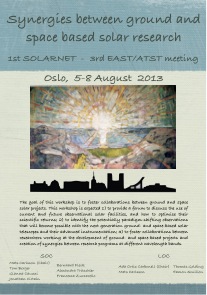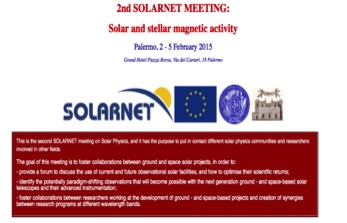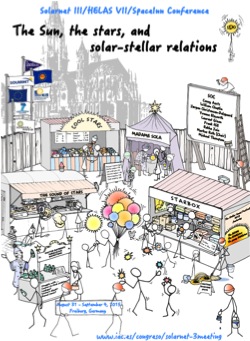Training Schools and Thematic Workshops Highlights
- Details
- Published on Tuesday, 01 March 2016 11:21
Aimed at training the new generation of scientists in the field of high-resolution solar Physics, these schools and workshops are being achieved by means of a dedicated program that foresees:
- The organization of summer/winter schools for PhD students and novel post-doc researchers on topics related to the development of new instrumentation for solar observations, diagnostic tools, hot solar research topics and fields of mutual interest for solar and stellar physicists.
- The organization of thematic workshops matched with the training schools (i.e. immediately after or in splinter sessions).
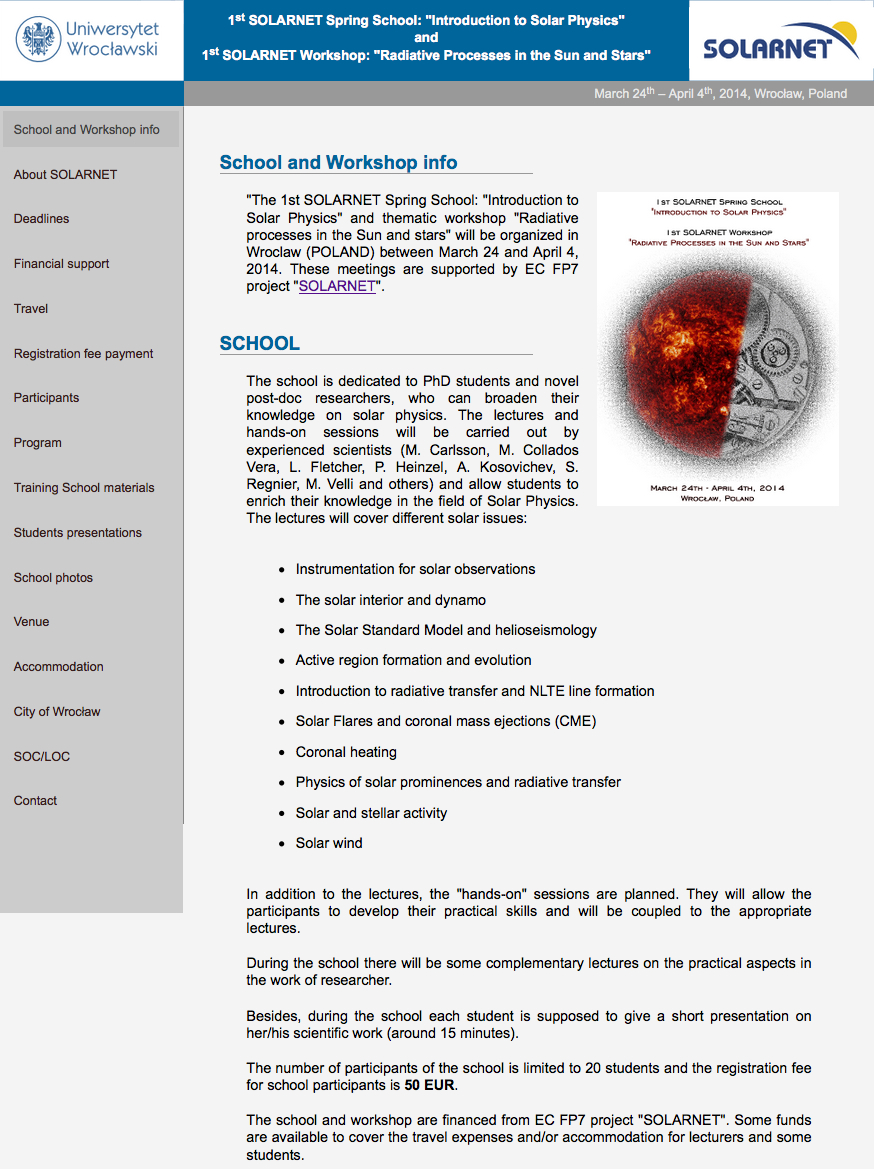
1st SOLARNET School "Introduction to Solar Physics" and1st SOLARNET Workshop "Radiative Processes in the Sun and Stars" (24 March - 4 April 2014, Wroclaw, Poland)
Presentations and materials provided by the lecturers are available at http://solarnet-east.eu/meetandworksh/solschandwork
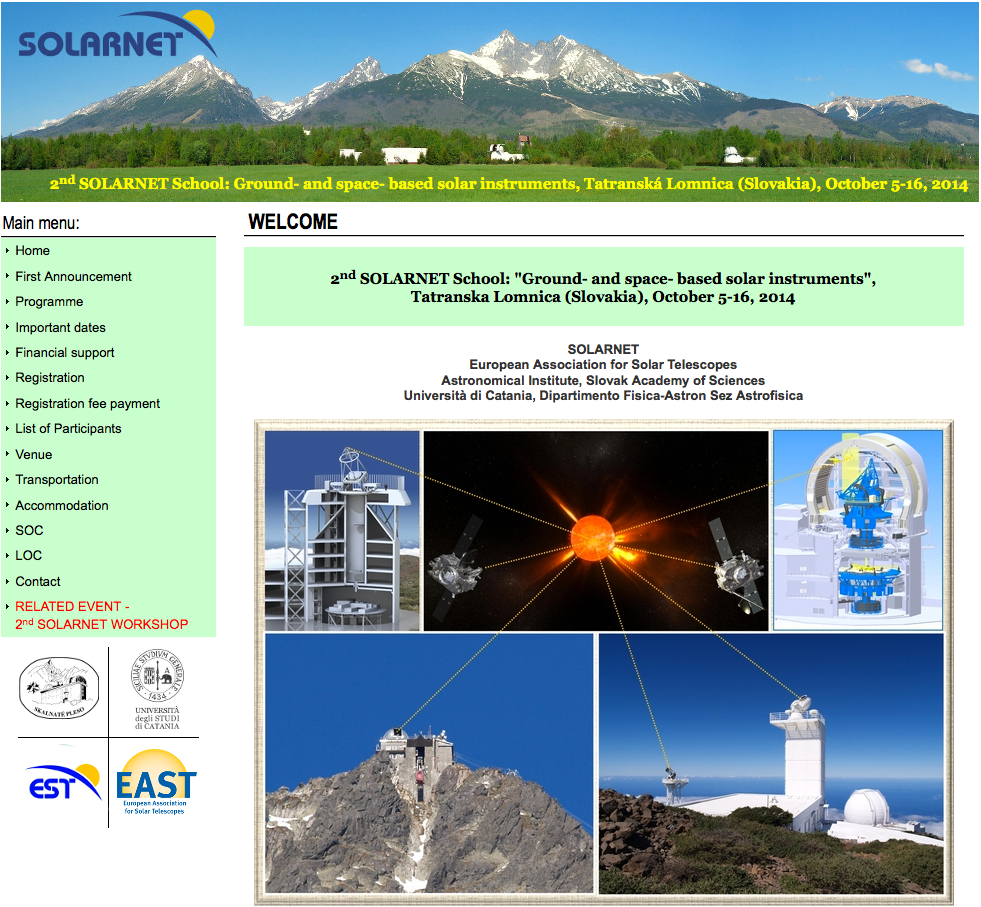
2nd SOLARNET School: "Ground- and space- based solar instruments" and 2nd SOLARNET Workshop: "Methods in high resolution and synoptic solar physics” (5 - 15 October 2014, Tatranska Lomnica, Slovakia)
•19 Applications
• 12 Participants
Click here to download presentations and materials provided by the lecturers
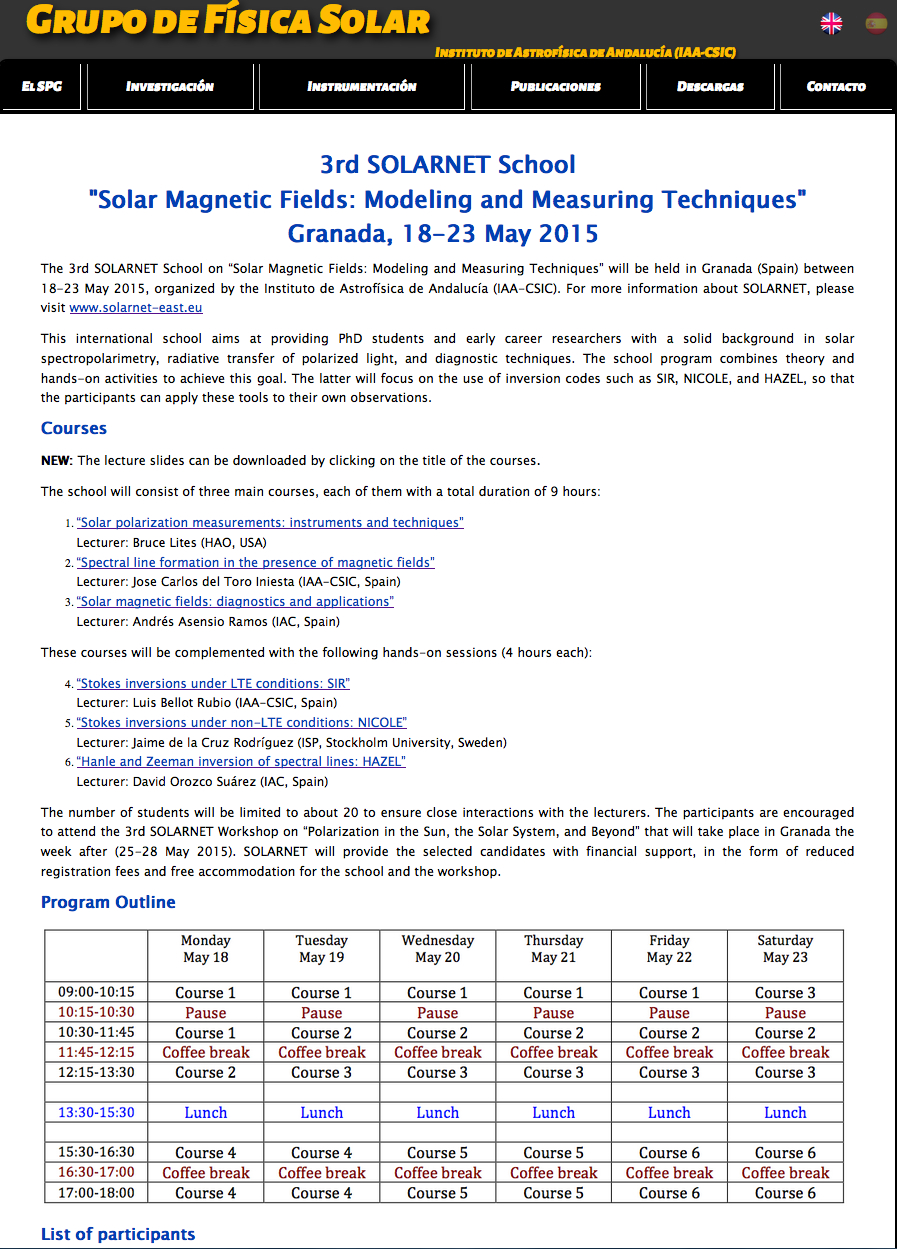
3rd SOLARNET School "Solar magnetic fileds: Modeling and measuring techniques" and 3rd SOLARNET workshop "Polarization in the Sun, the solar system, and beyond" (School: 18-23 May 2015 - Workshop: 25-28 May 2015 , Granada, Spain)
• 26 Participants
• 6 Lecturer
Presentations and materials provided by the lecturers are available at http://solarnet-east.eu/meetandworksh/solschandwork
GALLERY
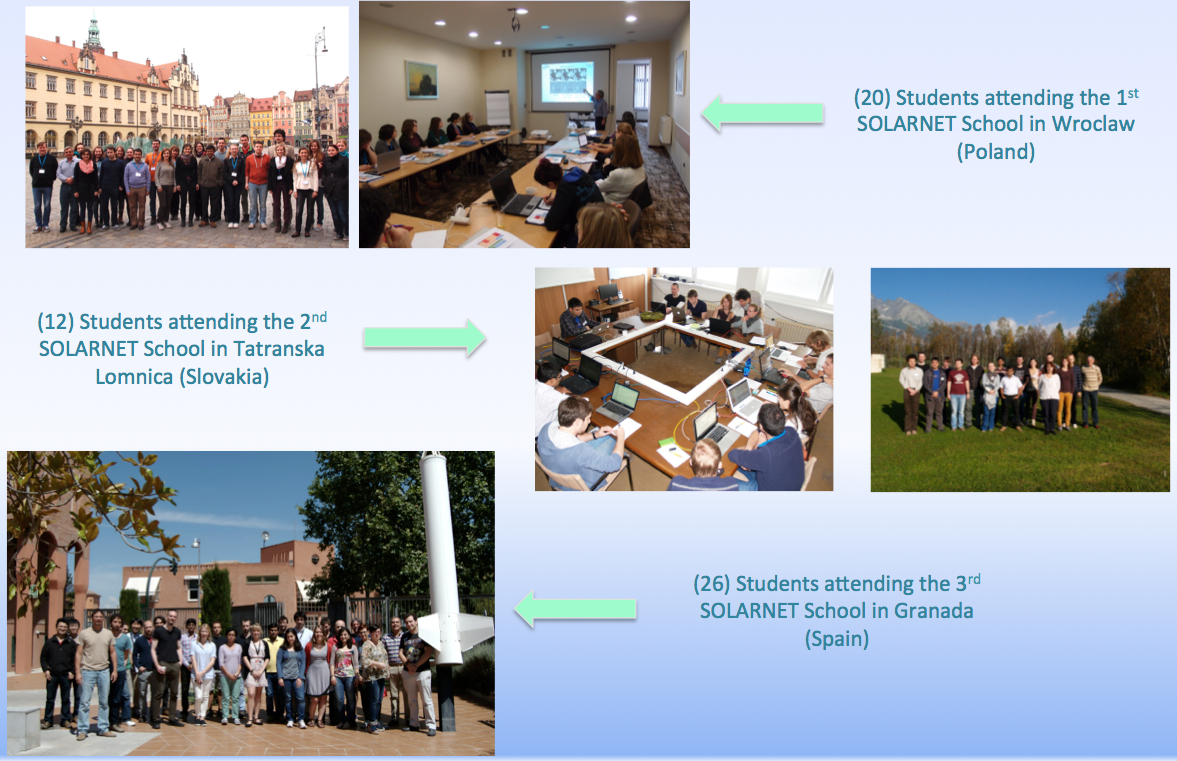
Highlights: SOLARNET Meetings on Solar Physics
- Details
- Published on Monday, 29 February 2016 10:36
Meetings on Solar Physics: To put in contact different solar physics communities and researchers involved in other fields, aimed at achieving the following goals:
- Periodic meetings on topics related to solar physics and solar – stellar connections, where the participants can show the results of their research and profit from discussion time slots devoted to exchange of experience and competences.
- The fostering of collaborations aimed at improving the interaction between theoreticians, experts in numerical simulations and observers.
- The sharing of pipelines and software for solar data reduction and analysis.
- The consolidation of high-resolution MHD simulations to analyze the performance of advanced instrumentation for high-resolution solar observations.
- Promotion of seismological studies as a way to understand solar/ stellar interiors
These meetings are being also a very appropriate environment for the dissemination of knowledge.
1st SOLARNET Meeting: "Synergias between ground and space based solar research"
2nd SOLARNET Meeting: "Solar and stellar magnetic activity"
• 61 Participants
3rd SOLARNET Meeting: "The Sun, the stars, and the solar-stellar relations"
GALLERY
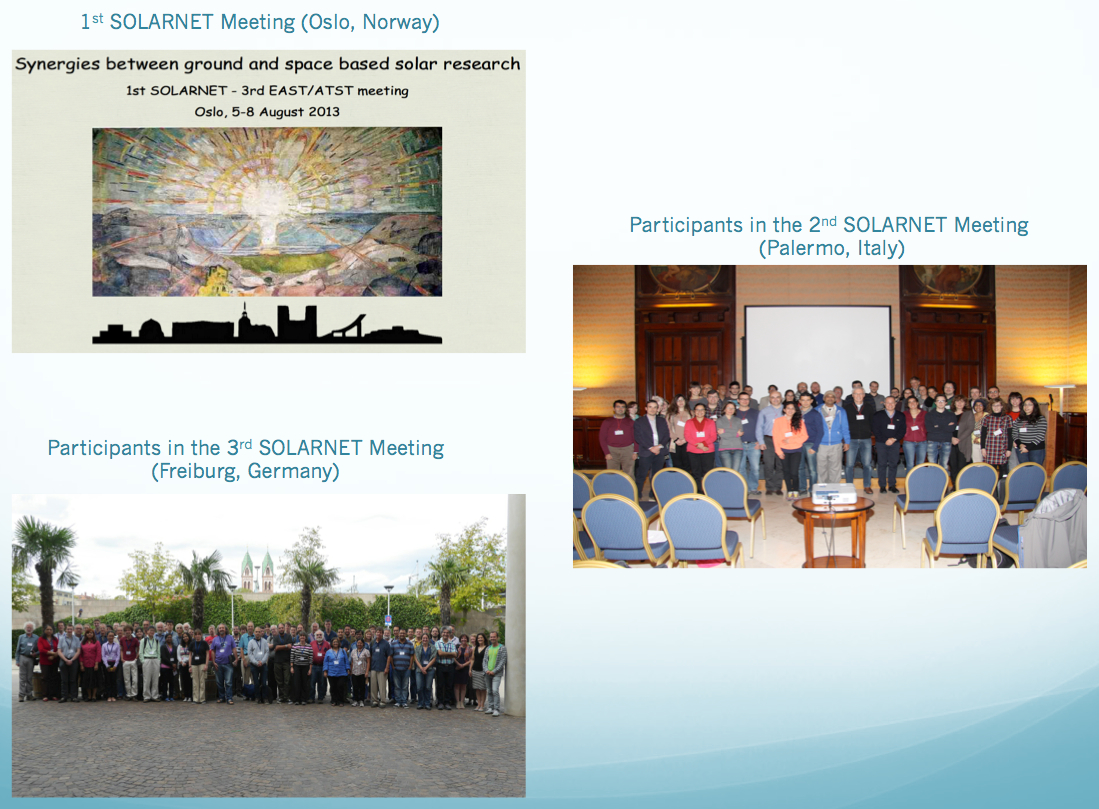
TAS_Highlights
- Details
- Published on Wednesday, 24 February 2016 12:00
SOLARNET Trans-national Access and Service Programme supports the access of the European solar Physics community to some of the best European telescopes: GREGOR, THEMIS, SST, VTT located at Tenerife and La Palma, and to IBIS/DST and ROSA/DST instruments, installed at US Dunn Solar Telescope.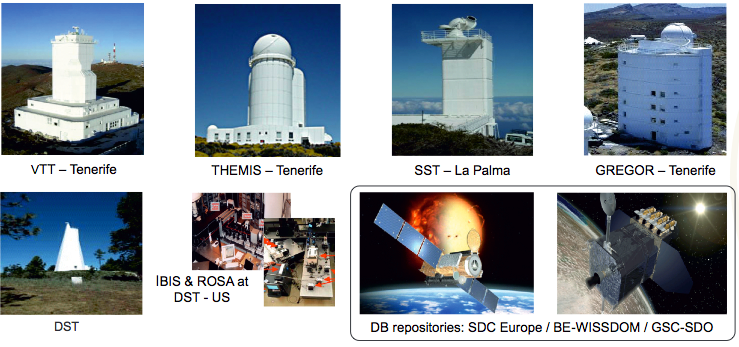
Every facility is offering an average of 20 observing days per year to external observers.
SOLARNET is also supporting the access to the most demanded European Science Data Centre: HINODE, BE-WISSDOM, and GSC-SDO. Access to these database repositories is freely provided through internet connection.
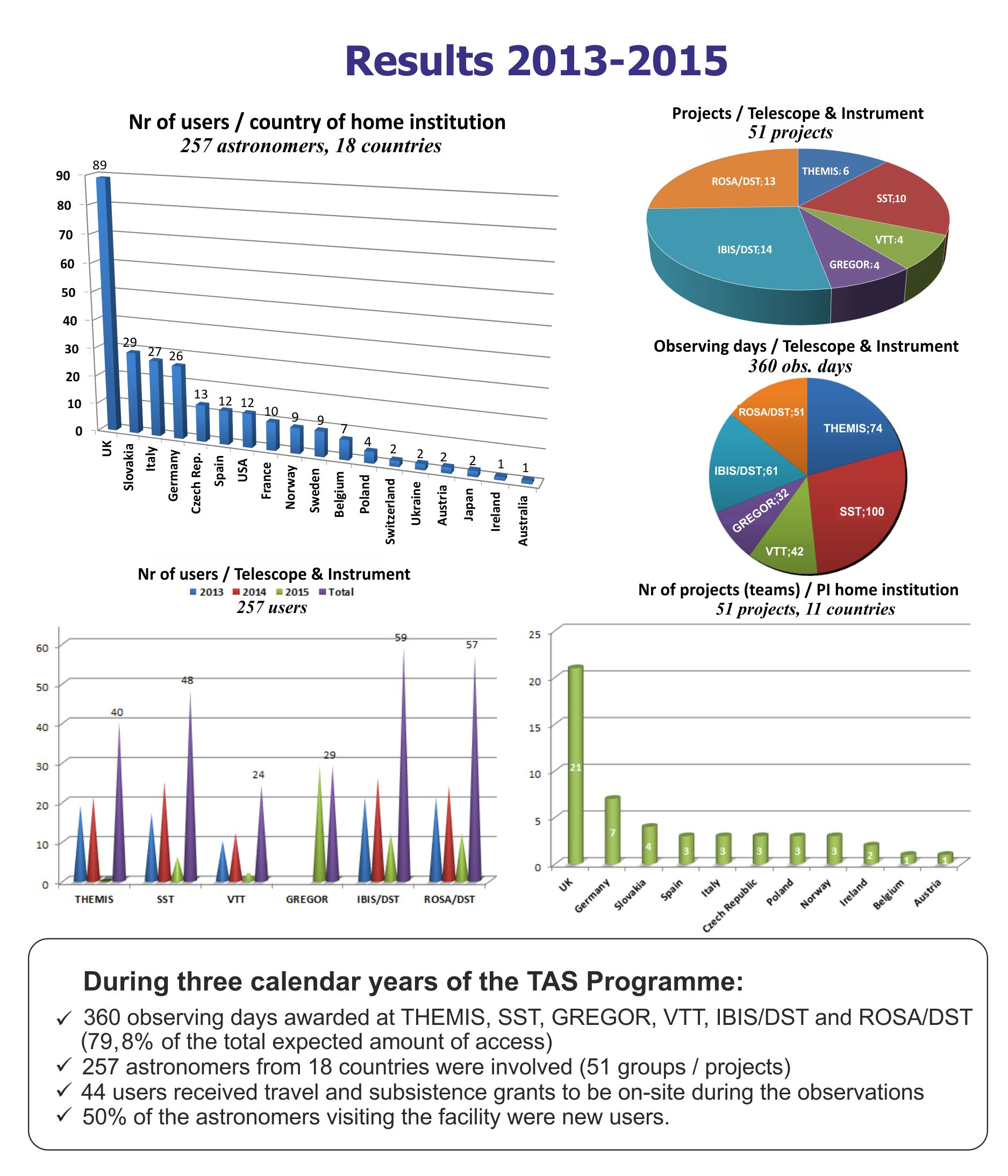
Highlights
- Details
- Published on Tuesday, 23 February 2016 08:31
Join Research Activities
Join Research Activities carried out to improve the service provided by owners / operators of research infrastructures for research on solar physics.



